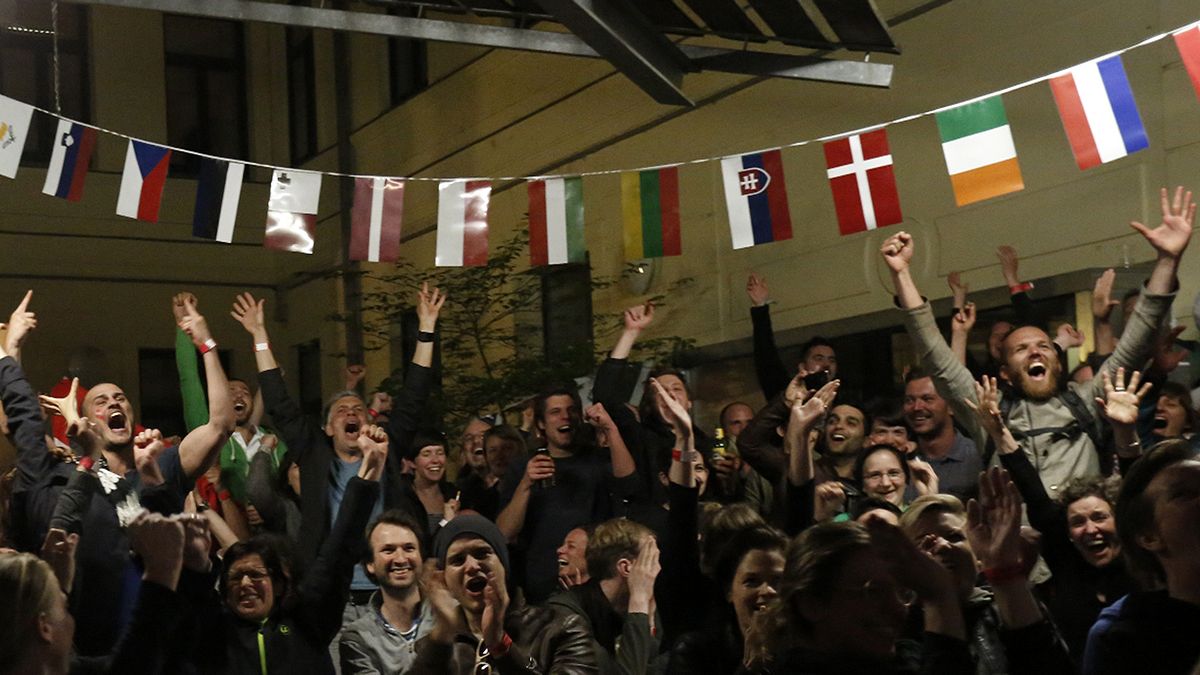The power of pop While European countries are preparing to celebrate the 60th anniversary of the Eurovision song contest (including a special concert
The power of pop
While European countries are preparing to celebrate the 60th anniversary of the Eurovision song contest (including a special concert on March 31st in London), we take a look at its forgotten rival the Intervision Song Contest, held in Sopot, Poland, in the late 1970s and early 80s.
This is especially because it might be on its way to a comeback for an Iron Curtain call.
The Soviet bloc created its own alternatives to pretty much everything the West had to offer, among this a military pact, an economic cooperation agreement, television networks and… an international pop singing jamboree, broadcast live to a huge audience.
The Intervision Song Contest (ISC) was born out of the Sopot Festival. The seaside host town on the Baltic Sea in northern Poland had been providing a stage for songs since the early 1960s.
Now it rebranded. Intervision’s contestants all came from the countries within Moscow’s sphere of influence, including Cuba and Finland (borderline case). The ISC took place four times, from 1977-1980.
Hit the lights
Intervision introduced a degree of interactivity and audience participation into the voting process. By some accounts, the popularity of each song was judged by the amount of electricity consumed by the television viewing public during the performance. Many households had TV sets but did not have phones to call in their votes, so they would simply switch on their lights.
Bringing the curtain down
And yet it would be short-lived. It wasn’t that Western Europe was always one big happy family, but the West accepted that popular culture (informal by definition) could be an arena for unpoliticised entertainment. The Eastern bloc, on the other hand, was characterised by a lack of fundamental trust between different countries.
The USSR was steadfastly suspicious of the other seven Warsaw Pact member states even though they supposedly all shared the same ideology.
In fact, it was the Independent Self-governing Trade Union “Solidarity” movement in Poland, which sprang out of workers’ protests, that put an end to the Intervision Song Contest.
Happily, however, the Sopot Festival has continued to the present day.
Morality and pop music don’t mix: who says so
Russia today is a participant in the Eurovision Song Contest, and yet increasing signs East-West socio-political strain reminiscent of the Cold War have been resurfacing.
In 2014, the top place in Eurovision going to bearded gay Austrian drag queen Conchita Wurst caused an outcry in Russia. A Saint Petersburg local councillor, for example, demanded that the culture minister end Russia’s presence at the Eurovision Song Contest, saying it is “immoral and promotes homosexuality”. Promoting homosexuality is against the law in Russia, although being gay is not, legally, an offence.
Intervision: 5 things you need to know
- The Intervision Song Contest was always held in Poland.
- Performers (unlike in Eurovision) were not limited to a three-minute stage appearance. Some stayed on stage for more than 20 minutes. For example, the dazzling Helena Vondráčková, from Czechoslovakia, threw in song after song, including a Stevie Wonder cover, also tap dancing.
- Czechoslovakia's dazzling Helena Vondráčková came first with "Painted Jug" in the inaugural year, 1977. Soviet pop diva Alla Pugacheva, who remains one of Russia's best-known singers, won the Intervision contest in 1978 with the song "Kings Can Do Anything". Poland's Czesław Niemen won with "Before Coming Spring" in 1979. Finnish Marion Rung sang the winning "Where Is the Night?" in 1980
- In 2008, Vladimir Putin (beginning his second premiership of Russia) proposed to restart the competition, to he held in the Russian city of Sochi; this time it was to involve Russia and Central Asian countries and the countries of the Shanghai Agreement. The bid was unsuccessful.
- In 2015, new efforts are in motion to revive the contest.
-
-
- .
-
